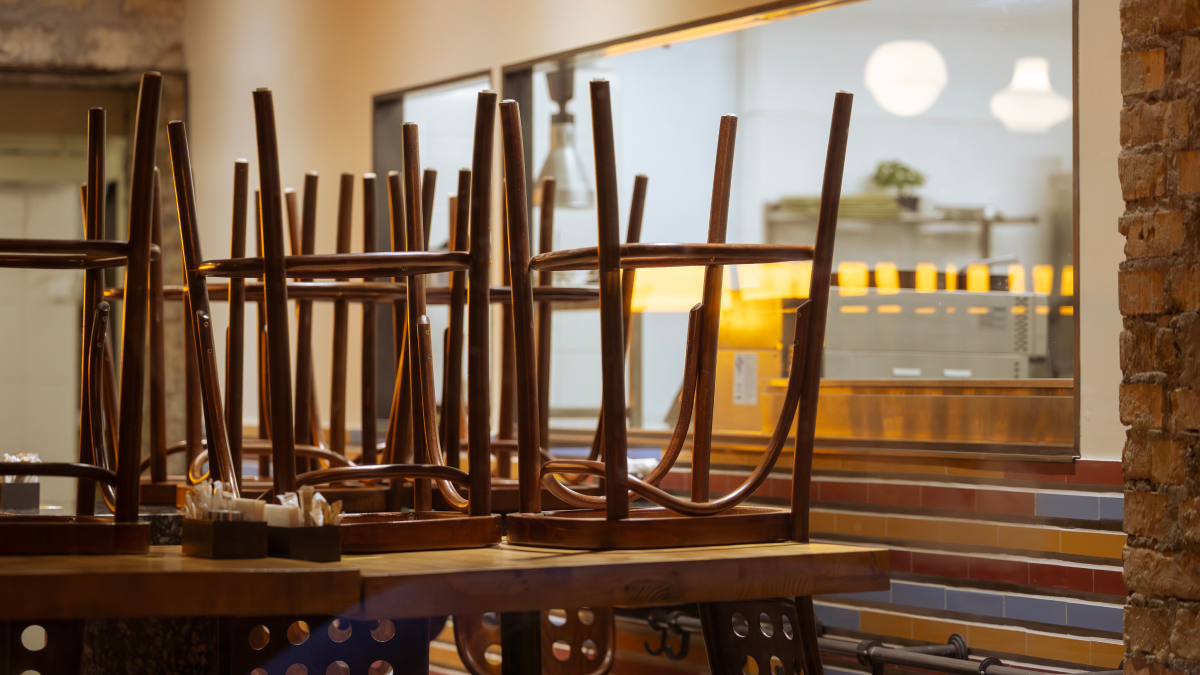A leaky faucet seems relatively harmless. At first.
But over time, a constant drip can eventually lead to a ton of water going down the drain. Much like that tap that needs attention, restaurants have a leak in their revenue—and they don’t even know it.
You’re probably doing everything you can to ensure reservations don’t slip through the cracks. Digital channels, like your website and reservation management platforms, have transformed how efficiently you can capture those bookings. But there's one crucial reservation channel that most operators overlook: your phones.
Phones feel like a straightforward necessity. They’re an essential but low-impact channel managed by staff. But what if the way your restaurant handles phone calls is quietly costing you reservations?
Why Phones Are Overlooked as a Revenue Driver Most restaurant operators think of their phone lines as basic administrative tools: answer calls, take messages, forward to key team members.
Modern digital channels often take priority because they're easier to track, promote, and optimize. Alternatively, phones can seem outdated or inefficient by comparison.
But this perspective doesn't match reality. For many restaurants, the phone remains the channel of choice for many guests. Especially for guests calling about reservations and other high-value incremental revenue sources such as:
Special dining events Private parties and large group dinners Catering And more Restaurants know that driving revenue is crucial to the health of the business, meaning you need to capture as many opportunities as you can. Additionally, offerings like private dining and events often carry higher check averages and incremental revenue potential.
Today’s Guests Expect More than Ever Guests calling your restaurant often have immediate needs or unique requests. The technology has changed expectations and quick, immediate responses are quickly becoming the bare minimum. They’re also vital to capturing more business.
The Underlying Problem: Staffing Limitations Human staff naturally limit phone availability to their scheduled working hours. It’s unrealistic to have human coverage all day and night (unless you use a call center, but that can get expensive ).
Your front-of-house team can’t be available around the clock, and even during peak times, they may be stretched too thin to manage the phone. But what happens when guests call when the universe doesn’t align just right?
Consider someone planning a last-minute dinner and calling your restaurant before you open. Or perhaps a guest reaches out for a large catering order on your closed day. The most you can usually do in these scenarios is offer voicemail.
But voicemail leaves your team scrambling to return calls, often after the interest to book a reservation has passed.
This staffing limitation creates a significant blind spot: after-hours reservations. In truth, these after-hour moments hold untapped potential for incremental revenue.
The High Stakes of Missed Calls Today's guests expect seamless, quick interactions across every channel. This is especially true for booking reservations. A missed call doesn't always mean a single lost reservation. Who’s to say that a guest who booked a reservation wouldn’t also return in the future and share their positive experience with others?
Individually, a missed phone call might feel insignificant, but each missed call adds up. Over weeks and months, the cumulative impact is considerable.
Beyond direct lost revenue, delayed responses and unreturned calls also negatively impact the guest experience. Some of the finest restaurants in the world know that every touch point with a guest can be an opportunity to build on their reputation for exceptional hospitality and attentive service.
How AI Phone Answering Fills this Critical Gap Fortunately, emerging technologies can close this blind spot. AI-powered phone answering solutions provide continuous coverage, ensuring your restaurant doesn't miss critical reservation opportunities—no matter the time of day.
Guests calling before service, late at night, or on days when you're closed will always reach immediate, attentive assistance.
Voice AI Success Story: The Fireman Hospitality Group The Fireman Hospitality Group provides an excellent example of how a reputable restaurant group in NYC embraces voice AI to capture more reservations by phone.
After implementing Slang AI and utilizing the official integration with OpenTable , they discovered something surprising. Out of 2,415 reservations created through the integration, 8% of them occurred outside of typical business hours. Without AI phone answering, these guests would have been sent to voicemail. Instead, their reservations were instantly captured, securing incremental revenue and ensuring those guests had a positive experience right from the start.
Put an End to Revenue Leaks by Phone Your restaurant's phones are more than just a simple operational necessity. They’re still an important communication channel that has a real impact on incremental revenue potential and positive guest experiences.
Recognizing and closing the gap created by traditional staffing limitations can yield substantial rewards. AI-powered answering solutions offer a compelling path forward, turning your restaurant's phone line into an active revenue driver.
Slang AI helps countless restaurants automate phone calls to boost staff productivity and capture more revenue. Book a quick 10-minute demo today to see how it works.



